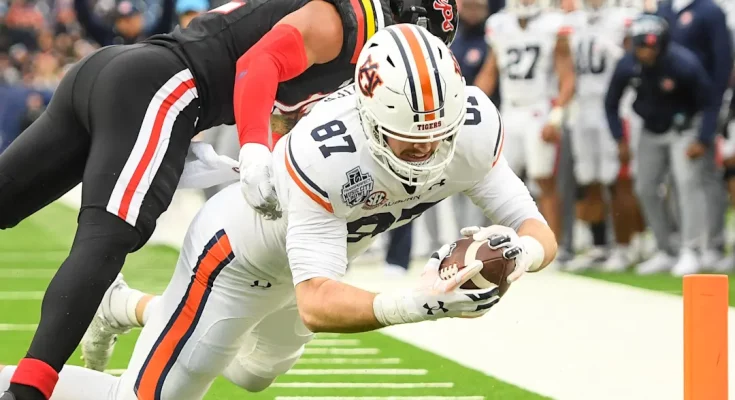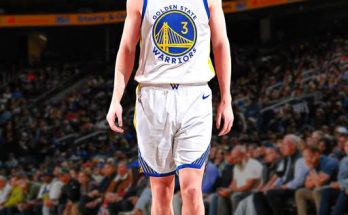Hugh Freeze, head coach of the Auburn Tigers, has made it abundantly clear that the health of his tight ends is a top priority this season. As the Tigers gear up for what many are calling a make-or-break year under Freeze’s leadership, the emphasis on keeping key players on the field, especially tight ends, could be a defining factor in Auburn’s success. Freeze’s focus on injury prevention and player well-being is more than just lip service—it’s a strategic approach that highlights how critical tight ends are in his offensive scheme and the broader team dynamics.
The tight end position has evolved dramatically in college football, and coaches across the country recognize their dual role as blockers and receivers. For Freeze, the tight ends are linchpins in both protecting the quarterback and opening up the passing game. This dual responsibility places a physical toll on the players, which can lead to increased injury risk if not managed carefully. Freeze’s insistence on maintaining tight end health is rooted in this understanding: to win games, Auburn needs these players performing at their peak without prolonged absences due to injury.
Freeze’s emphasis on health is also a reflection of his overall philosophy on player management. He recognizes that modern college football demands a delicate balance between aggressive play and player longevity. Tight ends, given their frequent contact and varied roles, require special attention in training regimens and recovery protocols. By highlighting their health, Freeze is signaling to his coaching staff, trainers, and players that avoiding injury is not just about physical fitness but about smart play and sustainable performance throughout the season.
One of the key ways Freeze is working to keep tight ends healthy is through tailored conditioning programs that focus on strength, flexibility, and injury prevention. These programs are designed not just to prepare players for the physicality of the game but to build resilience against common injuries such as ACL tears, hamstring strains, and shoulder issues. Freeze’s approach is data-driven, incorporating the latest sports science and medical advice to monitor player health closely. By doing so, the coaching staff can identify early signs of fatigue or injury risk and intervene before problems become severe.
Moreover, Freeze’s focus on health extends into practice routines. The coaching staff has implemented modifications to reduce unnecessary wear and tear on tight ends during drills, balancing intensity with rest. This strategy helps ensure that players remain fresh and ready for game day, rather than worn down by relentless practice sessions. It also reflects a broader trend in college football where coaches are increasingly mindful of managing practice loads to minimize injury risks, a philosophy Freeze has embraced wholeheartedly.
Beyond physical conditioning and practice adjustments, Freeze is cultivating a culture of accountability and awareness among his players. He encourages tight ends to communicate openly about any discomfort or injury concerns, creating an environment where health issues can be addressed proactively rather than ignored or hidden. This transparency is crucial in preventing minor injuries from escalating into season-ending problems. Freeze’s leadership fosters trust and emphasizes that player health is paramount—not only for the individual but for the team’s overall success.
The importance of tight ends to Auburn’s offense under Freeze cannot be overstated. These players are essential for both the running and passing game, often serving as safety valves for the quarterback and key blockers on running plays. When tight ends are healthy and performing at their best, the offense operates with more versatility and unpredictability. Conversely, if these players are sidelined by injury, the offense can become one-dimensional and easier for opponents to defend. Freeze’s proactive approach to health is therefore directly tied to maintaining the competitive edge on the field.
In the broader context of Auburn’s season goals, Freeze’s emphasis on tight end health also reflects the team’s need for consistency and stability. After a series of ups and downs in recent years, the Tigers are eager to build momentum and deliver a winning campaign. Keeping key players like tight ends available week after week is vital to sustaining that momentum. Freeze understands that injuries can derail even the most promising seasons, and his focus on health is a preemptive strategy to avoid that fate.
Furthermore, the tight end group at Auburn is seen as a developing core with potential impact players who can make a difference in tight games. Freeze’s attention to their health is also an investment in their long-term development. Healthy players are more likely to improve skills, gain confidence, and contribute meaningfully as the season progresses. By protecting these athletes, Freeze is not only safeguarding Auburn’s immediate chances but also nurturing talent that could define the program’s future.
Freeze’s health-first approach resonates beyond just the tight ends. It’s part of a larger shift in college football towards prioritizing player welfare amid concerns about the physical toll of the sport. Coaches like Freeze who adopt these measures are often viewed as progressive leaders who value their players as individuals, not just athletes. This mindset can improve team morale and foster a positive environment that attracts recruits who want to play for a program that takes care of its players.
In conclusion, Hugh Freeze’s insistence on emphasizing tight end health reflects a nuanced understanding of the demands of modern college football and the strategic importance of the position within Auburn’s offense. By prioritizing injury prevention, smart training, and open communication, Freeze aims to keep his tight ends on the field and performing at their best, which is critical for the team’s success. This approach not only enhances Auburn’s chances for a breakthrough season but also sets a standard for player care and sustainable competitiveness under Freeze’s leadership. As the Tigers prepare for a pivotal campaign, keeping tight ends healthy might just be the difference-maker that propels Auburn toward victory.



